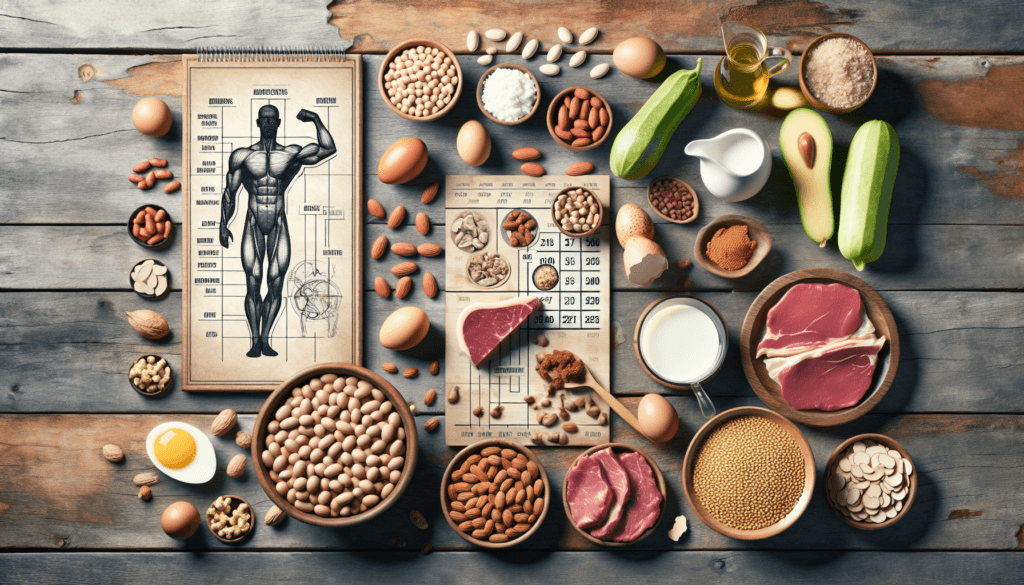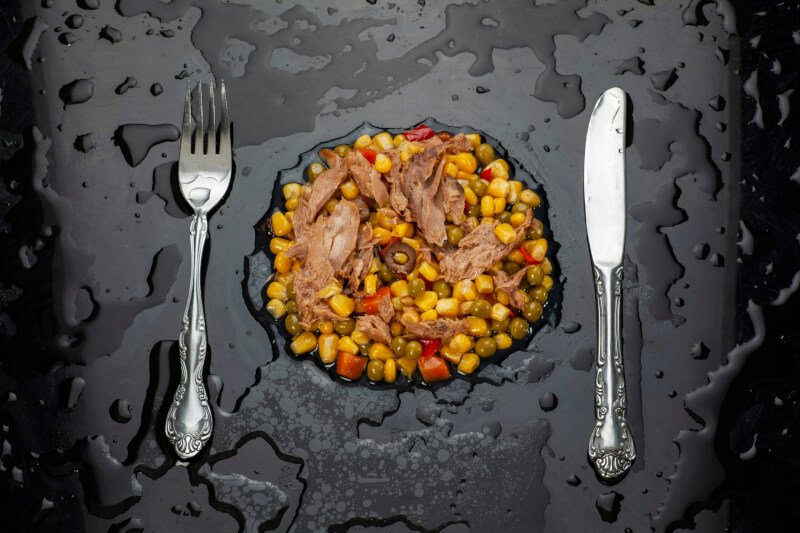As you progress through the chapters of life, it becomes increasingly important to prioritize your well-being. And when it comes to maintaining a healthy lifestyle, one crucial aspect is ensuring your body gets enough protein. But with a myriad of options flooding the market, it’s easy to feel overwhelmed. That’s why we’ve compiled a definitive list of the best sources of protein for boomer diets. With these tried-and-tested choices at your fingertips, you’ll be equipped to make informed decisions about your dietary needs, ensuring that you thrive in the years to come. So, let’s take a closer look at these protein powerhouses that will keep you feeling energized and vibrant as a boomer.
Animal-based proteins
Lean meats
Lean meats, such as chicken, turkey, and lean cuts of beef or pork, are excellent sources of protein for boomer diets. These meats provide a high-quality protein that is easily digestible and contains all the essential amino acids your body needs. Opt for grilled, baked, or roasted meats to keep them lean and healthy.
Poultry
Poultry, including chicken and turkey, is a fantastic source of lean protein. Whether you prefer grilled chicken breast or roasted turkey, these options are low in fat and high in protein. They can be easily incorporated into various dishes, from salads to stir-fries, to provide a protein boost to your meals.
Fish
Fish, especially fatty fish like salmon, trout, and mackerel, is not only rich in protein but also loaded with omega-3 fatty acids, which are essential for heart and brain health. Incorporating fish into your diet a few times a week can provide you with an abundance of protein and other nutrients. Opt for grilled, baked, or broiled fish to keep it healthy.
Eggs
Eggs are a versatile and cost-effective source of protein. They contain all the essential amino acids and are rich in vitamins and minerals. From scrambled eggs to omelets, eggs can be easily incorporated into your diet in various ways, providing you with high-quality protein. Consider using a minimal amount of oil or butter when cooking to keep the calorie content in check.
Dairy products
Dairy products such as milk, yogurt, and cheese are excellent sources of protein for boomer diets. They also provide essential nutrients like calcium and vitamin D, which are crucial for bone health. Opt for low-fat or fat-free dairy options to limit saturated fat intake. Greek yogurt, in particular, is a great choice as it is high in protein and lower in sugar compared to regular yogurt.
Plant-based proteins
Legumes
Legumes, including beans, lentils, and chickpeas, are fantastic plant-based sources of protein for boomer diets. They are not only high in protein but also rich in fiber, which promotes digestive health. Legumes can be easily added to soups, stews, salads, or used as a meat substitute in various dishes, making them a versatile and nutritious protein option.
Nuts and seeds
Nuts and seeds, such as almonds, walnuts, chia seeds, and flaxseeds, are not only tasty snacks but also excellent sources of plant-based protein. They also contain healthy fats, fiber, and a variety of vitamins and minerals. Including a handful of nuts or seeds in your daily diet can provide you with a good amount of protein and other essential nutrients.
Quinoa
Quinoa is a gluten-free grain that contains all the essential amino acids, making it a complete protein source. It is easy to cook and can be used as a base for salads, side dishes, or even as a substitute for rice in various recipes. Quinoa is also rich in fiber, making it a great choice for promoting digestive health.
Soy products
Soy products, such as tofu, tempeh, and edamame, are excellent plant-based sources of protein for boomer diets. They are not only rich in protein but also low in saturated fat. Soy products can be used in stir-fries, soups, or as a meat substitute in various dishes, providing a nutritious and protein-packed option.
Whole grains
Whole grains, such as brown rice, whole wheat, oats, and barley, not only provide complex carbohydrates but also contain a good amount of protein. Including whole grains in your diet can provide you with sustained energy and additional protein compared to refined grains. Try incorporating whole grains into your meals, such as whole wheat bread, oatmeal, or quinoa salads, for a protein and fiber boost.

Protein-rich vegetables
Spinach
Spinach is a highly nutritious leafy green vegetable that contains a decent amount of protein. It is also packed with vitamins, minerals, and antioxidants, making it a great addition to any boomer diet. Add spinach to salads, soups, or sauté it as a side dish to increase your protein and nutrient intake.
Broccoli
Broccoli is a nutrient-dense vegetable that is rich in protein, fiber, and various essential vitamins and minerals. It can be steamed, roasted, or added to stir-fries, soups, or salads to provide a protein-packed boost to your meals. Consider incorporating broccoli into your diet regularly for its numerous health benefits.
Brussels sprouts
Brussels sprouts are another protein-rich vegetable that is packed with essential nutrients. They are not only high in protein but also a great source of fiber, vitamins, and minerals. Roast or sauté Brussels sprouts as a side dish or add them to salads or stir-fries to increase your protein and nutrient intake.
Peas
Peas are a versatile legume that is rich in protein, fiber, and other essential nutrients. They can be added to various dishes, such as soups, stews, or salads, or enjoyed as a side dish on their own. Peas provide not only a good amount of protein but also contribute to overall digestive health and satiety.
Artichokes
Artichokes are a delicious and nutritious vegetable that is packed with protein, fiber, vitamins, and minerals. They can be roasted, steamed, or grilled to enhance their flavor and added to various dishes, such as salads, pasta, or grain bowls. Incorporating artichokes into your diet can provide you with a unique and protein-rich option.
Protein powders and supplements
Whey protein
Whey protein is a popular protein supplement derived from milk. It is a complete protein source and contains all the essential amino acids. Whey protein powders are easily absorbed by the body and can be a convenient way to increase protein intake, especially for older adults who may have difficulty meeting their protein needs through food alone. It can be added to smoothies, shakes, or even used in baking recipes to increase protein content.
Plant-based protein powders
For those following a vegetarian or vegan diet, plant-based protein powders are a great alternative to whey protein. These powders are typically made from sources such as peas, hemp, soy, or brown rice. Plant-based protein powders provide a good amount of protein and can be easily incorporated into smoothies, shakes, or baked goods.
Collagen supplements
Collagen supplements have gained popularity in recent years for their potential benefits for skin, joint, and bone health. Collagen is a protein found in the connective tissues of animals, such as bones, skin, and tendons. It is rich in amino acids, including glycine, proline, and hydroxyproline. Collagen supplements can be taken in the form of powders, capsules, or even added to beverages. However, it’s essential to note that collagen supplements are not a complete protein source.
Branched-chain amino acids (BCAAs)
BCAAs are a group of essential amino acids, including leucine, isoleucine, and valine, that are often used as supplements to support muscle recovery and growth. These amino acids are easily digested and can be beneficial for older adults looking to maintain or build muscle mass. BCAA supplements can be found in powder or capsule form and are typically taken before or after exercise.
Protein bars and shakes
Protein bars and shakes are convenient options for older adults to increase protein intake, especially when on the go or during busy times. They come in various flavors and protein sources, such as whey, plant-based, or collagen, providing a quick and easy way to meet protein needs. However, it’s important to choose protein bars and shakes that are low in added sugars and other unnecessary ingredients to ensure a healthy choice.
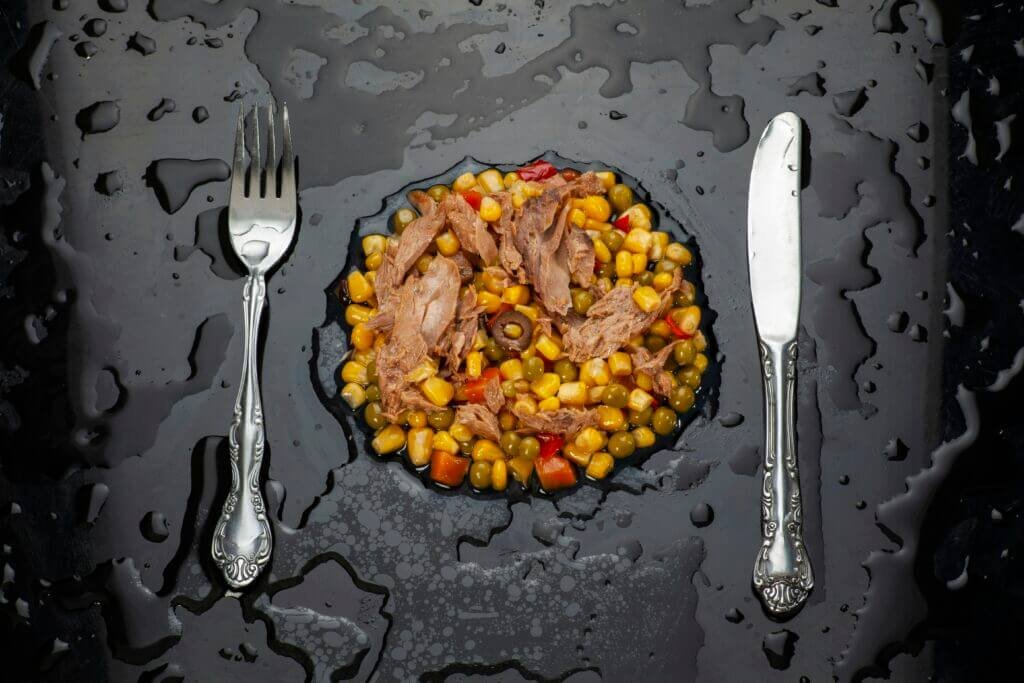
Combining protein sources
Why combine protein sources
Combining protein sources can be beneficial for boomer diets as it ensures a diverse amino acid profile and maximizes protein quality. Different protein sources have different amino acid profiles, and by combining them, you can ensure your body receives all the essential amino acids it needs for optimal health and muscle function.
How to combine protein sources
Combining protein sources can be as simple as incorporating different protein-rich foods into the same meal or snack. For example, adding beans to a salad with grilled chicken or combining nuts and yogurt for a protein-packed snack. By mixing and matching animal-based and plant-based protein sources, you can create balanced meals that provide a wide range of amino acids.
Creating balanced meals with multiple sources
Creating balanced meals with multiple protein sources is not only a great way to increase protein intake but also helps create a well-rounded and nutritious meal. Aim to include a combination of lean meats, poultry, fish, legumes, nuts, and seeds in your meals to ensure a variety of protein sources. For example, a stir-fry with chicken, tofu, and a mix of vegetables can provide a balanced and protein-rich meal.
Recipes and meal ideas
Here are some examples of recipes and meal ideas that combine protein sources:
- Quinoa salad with grilled chicken, black beans, mixed greens, and avocado.
- Greek yogurt topped with mixed berries, almonds, and chia seeds.
- Grilled salmon served with a side of roasted Brussels sprouts and quinoa.
- Tofu stir-fry with mixed vegetables and brown rice.
- Omelet filled with spinach, mushrooms, and feta cheese, served with whole wheat toast.
By experimenting with different combinations of protein sources in your meals, you can keep your diet exciting, flavorful, and full of essential nutrients.
Considerations for older adults
Digestive health
As we age, digestive functions may decline, making it important to choose protein sources that are easily digestible. Opting for lean meats, poultry, fish, and plant-based proteins like legumes and tofu can help support digestive health and minimize any discomfort.
Reduced appetite
Older adults may experience a reduced appetite, making it challenging to meet protein needs. To overcome this, it may be beneficial to consume smaller, more frequent meals throughout the day that include protein-rich foods. Additionally, incorporating protein shakes or smoothies can provide a quick and easy way to increase protein intake.
Chewing and swallowing difficulties
Some older adults may experience difficulties with chewing and swallowing, making it important to choose protein sources that are easy to consume. Soft foods like yogurt, pureed vegetables, and protein shakes can be excellent options for individuals with chewing and swallowing difficulties.
Food allergies and sensitivities
As we age, food allergies and sensitivities may develop or become more severe. It’s crucial to be mindful of any allergies or sensitivities you may have and choose protein sources that are safe for you. Consulting with a healthcare professional or registered dietitian can help you navigate any dietary restrictions or substitutions.
Protein needs based on activity level and health conditions
Protein needs can vary based on individual factors, including activity level and specific health conditions. It’s important to consider these factors when determining protein intake. Engaging in regular physical activity and maintaining a balanced diet can help optimize protein utilization and muscle health.
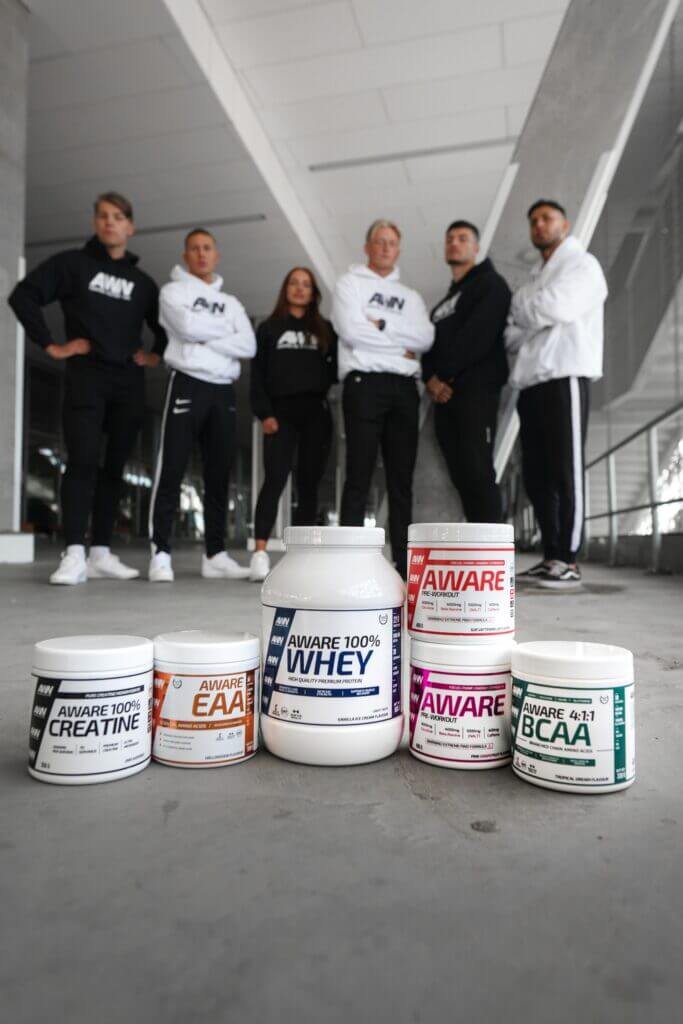
Importance of protein in boomer diets
Maintaining muscle mass
As we age, there is a natural decline in muscle mass and strength, known as sarcopenia. Adequate protein intake is essential for preserving muscle mass and promoting muscle repair and growth. Including protein-rich foods in your diet can help prevent age-related muscle loss and maintain overall strength and function.
Supporting bone health
Protein is a crucial component of bone tissue and plays a vital role in maintaining bone health. Adequate protein intake, along with sufficient calcium and vitamin D, can help support bone density and reduce the risk of osteoporosis in older adults.
Improving immune function
Protein is essential for the production of antibodies and other immune system components. Adequate protein intake is crucial for maintaining a healthy immune system, especially in older adults who may be more susceptible to infections and illnesses.
Preventing age-related diseases
Studies have shown that diets rich in protein, particularly from lean sources, can help reduce the risk of chronic diseases such as heart disease, diabetes, and certain types of cancer. Including protein as part of a balanced diet can be an effective strategy for minimizing the risk of age-related diseases.
Promoting satiety and weight management
Protein-rich foods have been shown to increase feelings of fullness and promote satiety, making it easier to manage weight and prevent overeating. Including adequate protein in your meals can help regulate appetite and support weight management in boomer diets.
Protein intake recommendations for boomers
Recommended daily allowance
The recommended daily allowance (RDA) for protein varies based on individual factors, including age, sex, and activity level. For most adults, the RDA is set at 0.8 grams of protein per kilogram of body weight. However, older adults may have slightly higher protein needs to maintain muscle mass and prevent age-related muscle loss.
Protein needs for older adults
While the RDA for protein provides a general guideline, older adults may benefit from higher protein intakes. Some research suggests that older adults may benefit from protein intakes ranging from 1.2 to 1.6 grams of protein per kilogram of body weight. Consulting with a healthcare professional or registered dietitian can help determine your specific protein needs based on your health and activity level.
Protein distribution throughout the day
Distributing protein intake evenly throughout the day can help promote optimal muscle protein synthesis and support muscle health. Aim to include a good source of protein, such as lean meats, legumes, or dairy products, in each meal or snack.
Considerations for different health conditions
Individuals with certain health conditions, such as kidney disease or diabetes, may have specific protein recommendations or restrictions. It’s important to consider any underlying health conditions and work with a healthcare professional or registered dietitian to determine the most appropriate protein intake for your individual needs.
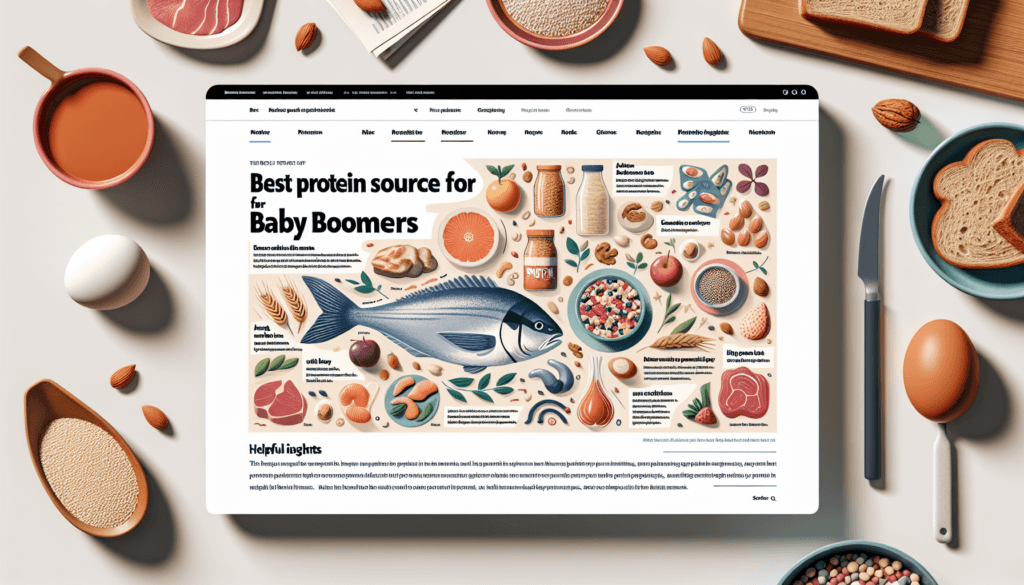
Protein quality and bioavailability
Complete vs. incomplete proteins
Proteins are made up of amino acids, some of which can be produced by our bodies (non-essential amino acids) and others that must be obtained from our diet (essential amino acids). Complete proteins contain all the essential amino acids, while incomplete proteins lack one or more. Animal-based proteins, such as meats, poultry, fish, eggs, and dairy products, are typically complete proteins, while plant-based proteins may be incomplete.
Protein digestibility and absorption
The digestibility and absorption of protein can vary depending on the source. Animal-based proteins, such as lean meats, poultry, and fish, are generally more digestible and absorbed more efficiently by the body compared to plant-based proteins. However, combining plant-based proteins, such as legumes and grains, can enhance protein digestibility and absorption.
Considering amino acid profiles
When it comes to protein, the amino acid profile is crucial for overall quality. Different protein sources have different amino acid profiles, and consuming a variety of protein sources can help ensure the body receives all the essential amino acids it needs. This is especially important for boomer diets, as amino acids play a vital role in maintaining muscle mass and overall health.
Animal vs. plant-based protein quality
Animal-based proteins are generally considered higher quality compared to plant-based proteins due to their complete amino acid profiles and superior digestibility. However, plant-based proteins can still provide adequate protein when consumed in combination with other plant-based protein sources to ensure a variety of amino acids are obtained.
Balancing protein with other nutrients
Healthy fats
Including healthy fats, such as those found in avocados, olive oil, nuts, and seeds, alongside protein sources can help provide essential fatty acids and promote overall health. Opt for sources of unsaturated fats and limit saturated and trans fats for optimal health benefits.
Complex carbohydrates
Incorporating complex carbohydrates, such as whole grains, legumes, and starchy vegetables, along with protein sources can provide sustained energy and additional nutrients. These carbohydrates can also promote digestive health due to their high fiber content.
Fiber
Fiber plays a crucial role in digestive health and can be found in various plant-based protein sources like legumes, vegetables, and whole grains. Including fiber-rich foods alongside protein sources can help support overall digestive health and promote regular bowel movements.
Vitamins and minerals
In addition to protein, it’s important to consume a variety of fruits and vegetables to ensure an adequate intake of vitamins and minerals. These nutrients work in synergy with protein to support overall health and well-being.
Hydration
Staying hydrated is essential, especially when increasing protein intake. Adequate hydration supports digestion, kidney function, and overall health. Ensure you drink enough water throughout the day, and consider incorporating hydrating beverages such as herbal tea or infused water to keep hydrated.
In conclusion, protein is essential for boomer diets as it plays a crucial role in supporting muscle and bone health, immune function, and overall well-being. Incorporating a balanced mix of animal-based and plant-based protein sources can provide a wide range of essential amino acids and other vital nutrients. By considering individual needs, health conditions, and activity levels, older adults can optimize their protein intake and enjoy the benefits of a healthy and protein-rich diet.
